The Injured Are Everywhere
As we come under attack, yet again, what do our reactions say about us?
 Rahul Bhatia
Rahul Bhatia
 Rahul Bhatia
|
20 Jul, 2011
Rahul Bhatia
|
20 Jul, 2011
/wp-content/uploads/2015/11/cover-mumbai-1.jpg)
As we come under attack, yet again, what do our reactions say about us?
The injured are everywhere. At Zaveri Bazaar, two streets away from one of the 13/7 blast sites, Mr Mishra, who runs a small shop in a century-old building, watches the police empty the alleys of lingerers and journalists, pushing them to the periphery. His son arrives from a hospital just then, having met a boy who worked for them. The boy had stepped out for a bite. Then his leg was blown off. One worker at a restaurant five shops away from the epicentre is so shaken, he conducts his end of a 15-minute interview from behind a metal shutter. Another saw a body launched upwards by the blast. “That’s where it happened last time,” Mishra says, motioning towards the spot where the previous blast occurred. He stayed open. “Let me tell you something. It’s all up to Him. There was a fire here once. Everything burned and burned. But to this,” he gestures to a framed illustration of Hanuman, “nothing happened. Now you tell me. This place belonged to my grandfather. Now it is mine. Tell me, should I move?”
For some, the damage lies in moving. For others, life exists in moving on.
11 JULY 2006 TO 13 JULY 2011
Almost five years ago, an art director decided to leave for home early. At Dadar, he let one train go by because its seasoned passengers were notorious for trenchantly blocking doorways. He hauled himself into a first class compartment in the next one, and stood close to the centre of the car. The train passed over Mahim’s vile creek, and rattled by Vile Parle’s markets and Andheri’s chaos. And then, just like that, he couldn’t hear, and couldn’t see. Everything went black. Nothing made a sound anymore. At first he thought something had happened to him. Then it dawned on him that something else had happened. Ashwin Boricha didn’t realise it then, but his eardrums were ruptured, he had temporarily lost all sight, and his trunk was wounded along its entire length, all the way down to his knee. Whatever it was had knocked him off-balance, and when he got up his legs buckled, and he fell to the metal floor. He couldn’t even breathe. Using his elbows for support, he dragged himself to the nearest source of light, correctly assuming it was the exit. At the edge of the doorway, arms grabbed at him, and he felt the slow rocking of the human chain that carried him. Eventually someone put him in a rickshaw, which sped to a hospital. He was black with blood and chemicals he can’t recall now, but he remembers being dropped twice at the hospital in the chaos. There, they placed him among the dead, and he had to loudly declare that he was, in fact, alive. His status was duly upgraded. Then a cousin transferred him to a Juhu hospital, where the operation lasted eight hours. His eyelids, lips, and the webbing between fingers were torn. His damaged right eye was beyond repair. His hearing was now 70 per cent of what it had been, and he still felt lucky. This was as good as it would ever get.
As he lay in bed, NGOs came to console him and help him climb out of the depression he didn’t allow himself. Boricha pushed them away. Then Indian radio’s walking talking nadir, a jock named Jeeturaj, came by and declared in absolute radio fashion: surely you must want revenge. Boricha said no, he felt no such thing. You have to accept it happened to you, he says to me, and besides, I was enthusiastic about getting back to life.
After half a year of bed rest, he put on dark glasses and began to go to work. His right cornea needed protection. He wore a T-shirt inside to help his wounds heal without irritation. He didn’t travel by train. Not because he was frightened, but the crush inside would have hurt his chest, and this was pain he couldn’t take. At work they threw him a little party, and moved him to a desk away from harsh sunlight. He was the man he always was, but, in some ways, there was something a little less about him. Friends felt sad when they saw him. He felt this acutely. When they hugged him, he braced for the pain that would follow. In his words, while he had chosen to live, and to not give up, the inescapable truth was that his friends had seen him fit once. They knew of his love for adventure and the outdoors, and they knew he loved to drive.
These wounds still throb, he says. Wherever he goes, a tinny noise follows. When he sits down to design, he can’t help but feel the missing eye would have helped him see something more. “For an art director,” he says… and lets the words hang there. Asked if he found his moods changing, he says, “There was no change. It’s not like I became religious suddenly. I didn’t swing to one extreme or the other. The one thing that happened was I understood the importance of life, and the importance of other lives. You have to help people. I know this. Someone helped me out of the train. Someone helped carry me to safety. Someone put me in a rickshaw. Some rickshaw driver took me to hospital. They were all strangers.”
When Boricha stepped into a train again, he forced himself to stand exactly where he was that day. The bomb had been placed a few feet away. He saw his fears clearly, and by dissecting them, he could understand the nature of fear better. After an incident like the one he had lived through, “people react to a place more than they do to the incident itself. You can be scared of it. But, ideally, you want to break it down.”
But there is this one thing he doesn’t let too many people know—a kind of awesome power. His hearing’s a lot more sensitive. A lot. He can put an ear to the floor and tell you what his neighbours are up to. “Thank God, I don’t have any deformities.”
THE MOST DIFFICULT QUESTION
It’s five in the evening five days after the 13/7 explosions. Here, outside a household, a reporter hovers, reaching for the doorbell, pulling back, stepping forward, retreating, all the while rewriting the reason for his appearance. Nothing can make this sound good, but here goes: ‘Ma’am, I’m here to… uhhh…’, or ‘Hello, I’m a reporter and I was wondering if we could talk about… uhhh…’, or even ‘Uhhh…’. I ring the doorbell and brace for what might happen. For a minute there is no reply. I knock on the door loudly. Still nothing. An unanswered call is normally disappointing, but these are abnormal days, so there is relief. On his way down, the explanation comes in its clearest and therefore most cruel form: “I had hoped to speak with you about your husband, 26/11, and how you went about life after.”
This is the uncomfortable part. Standing outside doors, watching them watch you and wonder what this is about because they’ve never seen you before, but you have this look, this look that tells them what you’re about to say is awkward, and as soon as the first words come out, their eyes grow softer and their mouths close and they shake their heads because what’s being asked of them is to repeat a memory they can barely admit to themselves. They have been left behind. And terrorism didn’t just take away their mother, or father, or children; it made them curiosities. So, here we are, a few days after another incident, at their doorstep, asking them to rummage through the debris of memory.
Talk to me, tell me your tragedy, tell me who you are, who you were, what you’ve learned, how your life was disfigured. Tell me about your husband, where he sat, who sits there now, what he liked doing, what you did together, who are you now. Tell the journalist everything because he’ll nod sympathetically, because he’ll make sad eyes, because he won’t brutalise you, because he was there that day when it happened. No, not there, not in the thick of it at the hotel, but just outside it, in the lane behind where it happened. He didn’t see it, but he did hear it. But no, he lost nothing, and lost no one, and, well, that’s it, basically.
This sounds awful.
Rebuilt lives are constructed on the recognition of fragility. There is, inherent in every step of this reconstruction, a sense of something missing. And so, when they answer the doorbell, and you glimpse body language that speaks of repair, the question arises: what right have I to shake you again?
This has not been easy. You were supposed to know how survivors move on. How they change. How their allegiances shift. Whether they grow more radical. This involves getting into conversations many are in no mood for. Now thousands of miles away, Axel something, a German photographer who was neatly listed under ‘injured’ during 26/11, grows edgy and asks, “Why are you calling me?” because he knows already. He hears out the invitation to speak his mind, to talk about what happened, and who can blame him for saying he is sorry, but no, he has closed that chapter a long time ago? I want to say one thing, he says, I’m sorry that you people have to go through this over and over.
Go through what over and over? He means the city and terrorism. What of the father who lost his son last week, and now sits at the madrassa below his home, answering the same questions over and over again, saying what we want him to say, telling a television reporter that his son arrived home at 6 every day, and, when prompted to tell us what he thinks when the clock strikes six every evening, saying, yes, he hopes his son will walk through the door? The father is on autopilot, looking at each of us blankly—the sort of look you get waiting in queues at the passport office. On one side, the brother looks down, rocking himself slowly, scraping two nails together. “Just two months ago, he was married,” the father says, “we were so happy. He was such a good boy.”
ANOTHER TIME, ANOTHER BLAST
On the night of the 2006 blasts, I wrote about the scene outside a Mumbai hospital hours after the dust had settled: ‘The intern from KEM hospital was on his motorbike with a friend in Matunga, heading toward Bandra, when he heard an explosion at 6:30. It was at the station, three kilometres away. He raced back to the hospital and wore his scrubs, and took his first breather at 3 am the next morning, when he walked alone in the courtyard and stared past the fence at nothing in particular and then sat on a green stretcher with a touch of red on top. Outside the hospital were chalkboards with names of the admitted and the dead. A man speaking on a phone said, “We’ve looked everywhere.” The woman beside him was shattered. By the hospital entrance a woman howled and buried her face in her husband’s lap, and family gathered around them in vain. His eyes had glazed and he looked straight ahead without expression while patting her robotically. Behind his wife was another woman, sniffling. People stood in groups, saying nothing, too tired to break silences. They either waited, or they knew. Every now and then people would stride in purposefully, their calm countenances constructed solely on hope, and they would leave lost and defeated when yet another hospital told them that the person they sought to find was not there. Sometimes they would return, with renewed vigour, and leave broken again. A period of relative silence was shattered by the wail of two poor women who emerged from the hospital hitting their head with their hands, and they left the premises with the urgency one leaves behind bad dreams. But they must not have gone far because their cries could be heard faintly for an hour afterwards.’
Elsewhere in the city, a tax consultant who was usually on a train home at that time happened to be at hospital conducting a workshop on dealing with stress. The bombs went off, the phone lines went dead, his family went nuts with worry. Thirteen years ago, he happened to be at Nariman Point when he saw what happened. For a day, he didn’t go home. When he did, he told his kids to be careful. He had been in this city 16 years, and nothing like this had ever happened before.
Till they’ve happened to you, these things are not supposed to happen to you.
2 DAYS AFTER 13/7
The man of the house is dead. He was a peon, a man of modest means, but he was the man of this house. He returned home every night, sober, to the extended family he conscientiously supported. His home was down an alley in a chawl at Kandivili, where salvaged objects serve purposes they were never meant for. Signboards form ceilings, upholstery stops mosquitoes at doorways, and advertisement hoardings, now chopped into smaller pieces, cover windows. Water dribbles down walls and rushes across the ground. Down this alley that reeks of fish, past children who run in and out of doorways not much wider than themselves, was his home. The family sat on the floor quietly. He had no children of his own, but his niece, his brother says, was like a daughter.
They heard there was a blast. Just like that, they called to see if he was okay. They didn’t expect the worst, but wanted to be sure. He answered the phone and said he was hurt, but it didn’t seem like it was too bad. Then, a couple of hours later, they received a call to come quick. They found him three hours after it happened, but couldn’t recognise him. He had swollen up. His leg had been attended to, but they missed the injury to the back of his head.
Survivors come back to an emptier space—clothes behind the door, uneaten meals. His mother and wife went into shock and were admitted to a local hospital. His brother did not eat for two days. His five-year-old niece (and this might seem melodramatic, but it happened) asked when he would return. The household’s older women decided not to tell her what had happened. As for everyone else, the shock was compounded by the realisation that they were now on their own, and now had to do what he did for them.
3 DAYS AFTER 13/7
The young man who came to the door with his uncle was calmer now. Three days ago, his father died at Saifee Hospital, a victim of the Opera House blast. When he arrived at the hospital, he was still alive. But there was little hope on his face, or his mother’s, when my colleague Ritesh found them waiting outside the hospital’s emergency ward. Now, three days later, as we stood at his door, awkwardly hoping to see some sign of recognition on his face, there was none. What were we hoping for? His uncle put us out of our misery, and quietly said, “There’s a memorial service in three hours. Come there if you like.”
It was an imposition alright, but he graciously allowed it. The man who died was his brother. They were close. Every year, barring the last one, he said, they flew kites together. The kids were in their final year of college. We’ve just got to make sure they concentrate and get through this year, he said in the empty memorial hall. “We just have to try to make it as easy as possible for them.” An older woman shuffled in, stood by him, and began to cry.
THE NIGHT OF 13/7
Barely half and hour after the blast at Zaveri Bazaar, a river of people flowed away from the place. As a reporter navigated around them and headed to the scene, a shrill whistle from behind warned him to get out of the way. The whistler, a push-cart man, overtook the reporter and ran into the wave of people fleeing the market. Not balking. Not waiting. He had something to deliver.

/wp-content/uploads/2025/06/Cover-OpenMinds2025.jpg)



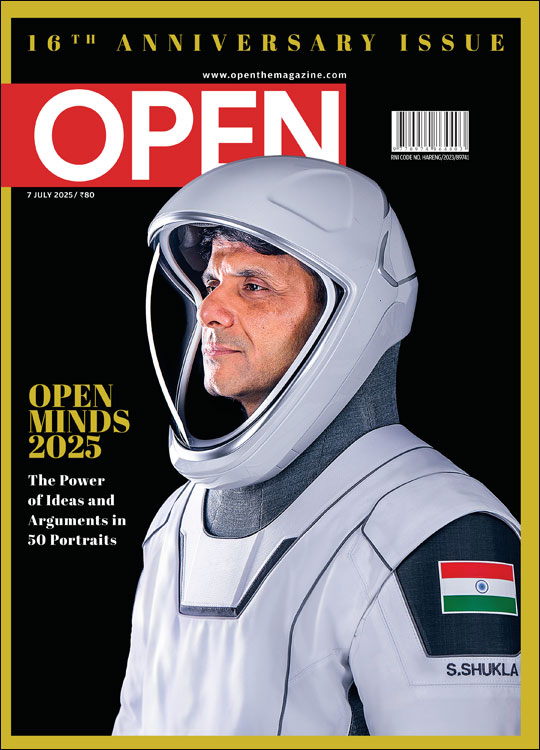
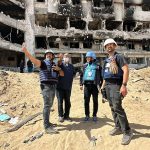
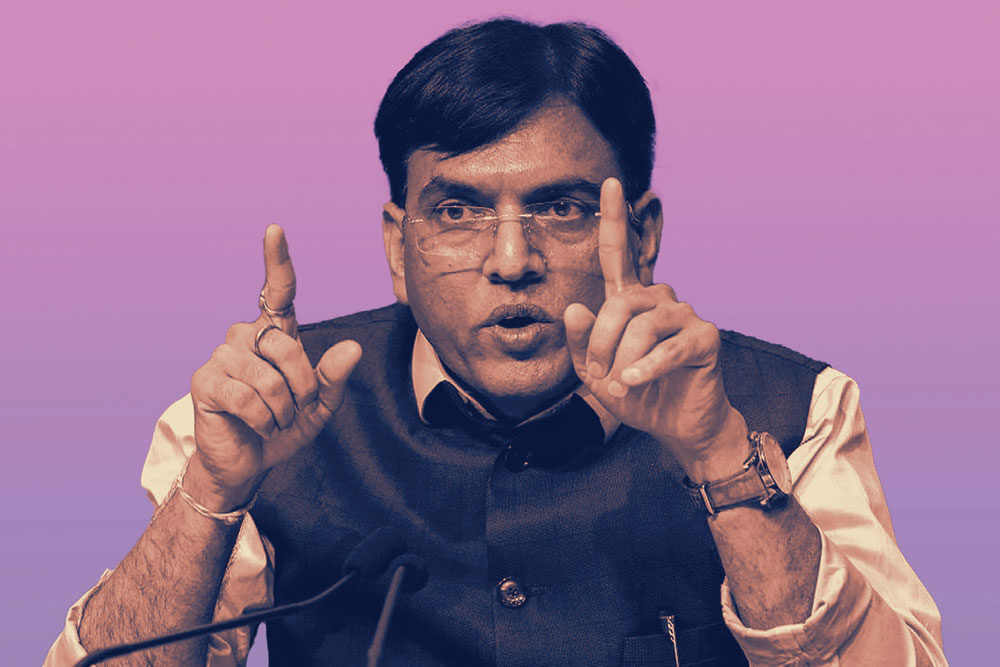

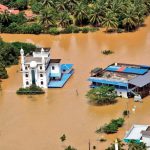
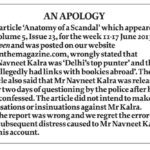
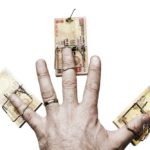

More Columns
'Gaza: Doctors Under Attack' lifts the veil on crimes against humanity Ullekh NP
Armed with ILO data, India will seek inclusion of social security in FTAs Rajeev Deshpande
Elon Musk Returns to Rebellion Mode Against Trump Open